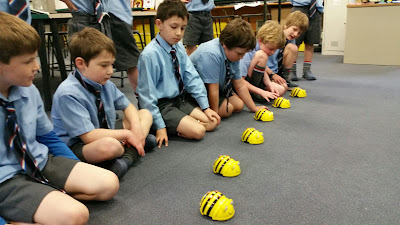As part of the Year 5 and 6's investigation into Kitchen Chemistry, the boys have learnt a number of new skills to help them think about the world around them.
One of our investigations looked into testing the amount of vitamin C in three different liquids, Ribena, orange juice and water with vitamin C dissolved in it. We made predictions about which would contain the most and least amounts. The boys had very mixed opinions and it was great seeing them explain their thinking.
We then used an iodine/starch solution to test our liquids. Using our lab equipment, the boys learnt the simple skill of using a pipette and carefully counted the drops of juice into the solution. The change of colour was fascinating and so we had a bit of a discussion around molecules and bonds.
We also did another experiment looking into what a mixture is and what something pure is. This time, the boys got to learn and use a meths burner. Students worked like scientists and carefully completed the experiment, making sound observations along the way.
Our kitchen chemistry unit finished with a fun experiment looking into different tastes and textures. As the boys added substances to their mixture, they had to taste each one and write down what it was like and how it felt in their mouths. This was lots of fun, especially for the teachers as the boys tasted citric acid and tartaric acid. Needless to say, the end product of sherbet fizz soon made up for the rather sour earlier tastes! At the end of this, boys were beginning to take their new learning and apply it to new situations. There were some excellent observations made about why the sherbet fizz reacted in their mouths. Well done Year 5 and 6!























































